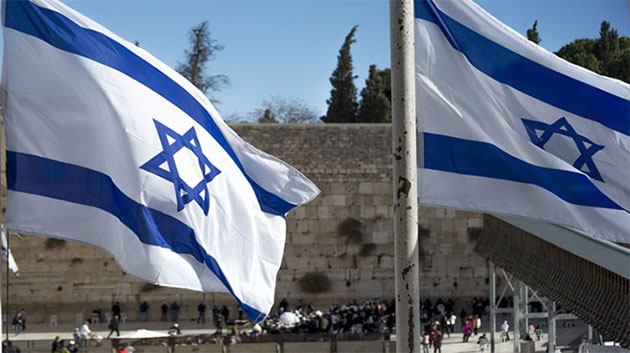Trump’s Goals for Peace in the Middle East
People of Israel expect more from Japan than the U.S.
Key points in this article:
- Former Israeli ambassador to Japan wants Japan to oversee peace in the Middle East
- The Founding Father of Israel awakened to Zionism while in Japan
- The Japanese and Jews have many things in common
With his Kippah, a cap worn by Jews for customary purposes, U.S. President Donald Trump offered prayers at the Wailing Wall in Jerusalem. He became the first U.S. president in office to visit the holy site, and thus this occasion elucidates Trump’s passion towards establishing peace in the Middle East.
In this visit, Trump went to the both countries in the Israeli-Palestinian conflict. He held talks individually with both the Israeli Prime Minister, Benjamin Netanyahu, and Mahmoud Abbas, the President of the State of Palestine.
Trump has shown confidence in his Middle East peace negotiations saying, “It’s something that I think is, frankly, maybe not as difficult as people have thought over the years”.
Japan Can Help With the Middle East Peace Deal
That said, it would be difficult for the U.S., much antagonized in the Arab nations, to bring complete peace to the area.
The former Israeli ambassador to Japan, Eli Cohen, says he wants Japan to act as the mediator for the peace process. Cohen is a great lover of Japan, even becoming a master karate practitioner. Cohen says that there are three reasons why Japan can contribute to the Middle East peace deals.
- Both Israel and Palestine hold Japan in high esteem. Japan’s stance towards Israel and the Arab region has always been neutral.
- Japan is geographically distant from the Middle East, which rules out the problem of political interests.
- Japan has no religious conflict with the Middle East.
In addition, Cohen says that, “If Japan were to establish close relations with Israel, it will encourage other Asian countries to do the same”.
The Founding Father of Israel Wakened to Zionism While in Japan
The people of Japan are very sympathetic to Israel and Judaism. This may be connected to Japan’s influence on the founding of Israel.
Joseph Trumpeldor (1880 – 1920) is famous among Jews for being the Founding Father of Israel.
Trumpeldor was a Jew, but being born in Russian, tried hard in his youth to live as a Russian. He volunteered to enter the Russian army and fought in the Russo-Japanese War. He was a brave fighter, but lost his arm and eventually became a prisoner-of-war of Japan. He spent one year in a concentration camp in Osaka, Japan, which catalyzed an awakening to his identity as a Jew.
Anti-Semitism was strong in Russia back then: people were persecuted for worship and participating in other Jewish religious practices. But in Japan, prisoners-of-war were treated well and they were free to worship and undertake other religious activities. During his life in Japan, Trumpeldor took the lead in Jewish practices of worship.
When he was released, Trumpeldor returned to Palestine (before the founding of Israel) and organized an army of Jewish people. This is what later became the Israel Defense Forces. At the time, many Jews were returning to Palestine and were living modest lives in small villages. The Arabs were persistently attacking the Jews, and Trumpeldor was shot in a fight. His last words were, “It does not matter; it is good to die for our country.”
Commonalities Between Jews and Japanese
The Jews and the Japanese also have many things in common.
For instance, the Jews believe themselves to be the “chosen ones”; the race selected by God and entrusted with the Ten Commandments. Similarly the Japanese consider themselves to be descended from the gods. Both cultures have a similar mythology.
Secondly, Israel began as a country in an empty desert and has now grown to be able to cultivate its needed resources, and owns the world’s most advanced technology. Likewise Japan was not blessed with natural resources, and was almost destroyed in WWII, but has now become the world’s 3rd greatest economic superpower. The commonality here is the highly able and motivated people who were more than willing to work hard for their country.
Thirdly, potential enemies surround both Israel and Japan: the Arab nations for Israel, and dictatorial China and North Korea for Japan. Both countries are similarly wary of the reliability of the allied U.S.
While the Security Treaty protects the Japan-U.S. relations, no such treaty exists between the U.S. and Israel.
This is an opportunity for Japan to step up as the mediator between Israel and Palestine. The only thing left is for Japan to make up its mind whether it wants to take its place as a global player.



















